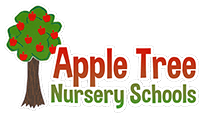Montessori learning materials cover 5 key areas: Practical Life, Sensorial, Mathematics, Language and Culture.
- Practical Life Materials provide a foundation for all other activities and help develop independence, coordination, concentration, self-control, self-awareness and confidence. Activities are those that all children use in their daily lives (pouring water, sweeping, sewing, gardening, zipping up one’s coat etc) but where the size and form of the materials are specifically adapted to your child’s hand. Your child gains confidence quickly as a result, mastering their own environment. Soon, your child will be confident demonstrating their activities in the class (pouring juice for a friend, preparing snack for the group etc) thus making them feel part of the community.
- The Sensorial Materials allow your child to acquire a clear understanding of the world around them using their senses. Through consciously selected activities, they will experience colour, size, texture, smell, taste, sound, shape, temperature and will be able to identify and name their qualities as being red/blue, big/small, rough/smooth, sweet/sour etc. They will then make classifications enabling them to develop their understanding through association, comparison and graduation. The exercises performed with this material organises your child’s thoughts, thus preparing them for the future. Maria Montessori called the child the “Sensorial explorer”. Activities will be undertaken alone, with a friend or in a group, playing and learning at the same time.
- The Language Material runs through the curriculum, initially enabling your child to start developing their vocabulary through songs, stories, words and phonetic sound games. The Montessori environment provides a foundation for the enrichment of your child’s vocabulary because all activities are associated with given words such as long/short, rough/smooth, vertebrate/invertebrate etc. This enrichment of vocabulary is essential for your child’s ability to understand and enjoy what they will be reading later. Your child will then be introduced to sandpaper letters, the moveable alphabet where they will build upon their phonetic knowledge, reading and writing their first words.
- The Mathematical Material will familiarize your child with counting, the decimal system and the four basic mathematical calculations. All work performed with Practical Life and Sensorial Materials is an indirect preparation for your child’s mathematical mind. Your child will experience mathematics with hands-on materials such as number rods, sandpaper numbers, number boards, number tiles, the spindle box, beads and games which, in time, will lead them to abstraction.
- The Cultural Materials allow your child to explore the natural world around them. The materials relate to a variety of different subjects including Geography (continents, countries, landforms, earth layers, solar system etc), Zoology (animals, classification of species etc), Botany (ecology, classification of plants etc), History (time lines, using a calendar etc), and Science (experiments such as sink/float, magnets, wind, day/night etc).
